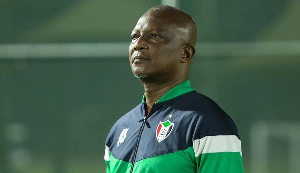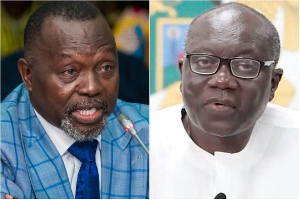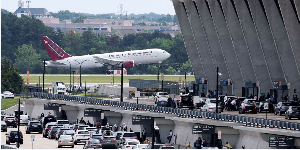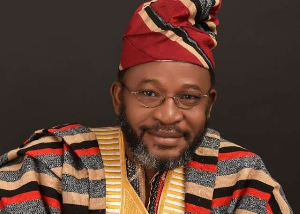Busua (W/R), April 11, GNA - Ghana will need about five billion dollars to implement thematic areas identified during the recent peer review dialogue between President Kufuor and his peers.
Dr. Kofi Konadu Apraku, Minister for Regional Cooperation and NEPAD, said the areas include democracy and good governance, economic governance and management, corporate governance and socio-economic development.
He was opening a two-day workshop on NEPAD and African Peer Review Mechanism (APRM) programme of action and implementation process at Busua on Monday.
District and Metropolitan Chief Executives in the Western and Central regions are attending it.
Dr. Apraku said President Kufuor's decision to submit himself for a review by his peers demonstrated the country's pace-setting role in Africa.
He said the four thematic areas were identified as "the main planks for the APRM and the domains around which Africa seeks to turn around its fortunes to entrench good governance and socio-economic grow and prosperity".
The need to resolve conflicts engendered by land ownership and lands use, the need to deepen decentralisation to enhance local government administration, improving public service delivery were some of the issues examined during the peer review dialogue.
Others were curbing delays in the administration of justice in the courts and creating opportunities for the assertion of right especially for women, persons with disability and the aged.
Dr. Apraku said on the basis of Ghana's creditable performance in good governance and the economic sectors, many countries were prepared to assist it to attain set goals and objectives.
On the notion that frequent allegations of corruption in the media could erode respect and goodwill of the government in the eyes of the international community, he said rather, this must be seen as evidence that there existed good governance in the country.
"I don't feel bad about this publications at all because we only have to work hard to disprove or minimize this", Dr. Apraku said. According to him if the media is always silent over the incidents of corruption in a particular country where corruption is pervasive does not mean that it doesn't exist in that country.
He said the media must continue to be aggressive but fair and circumspect in the bid to expose corruption at all levels. Dr. Apraku urged participants to work towards the exposure of corrupt practices in the society. 11 April 06
General News of Tuesday, 11 April 2006
Source: GNA












